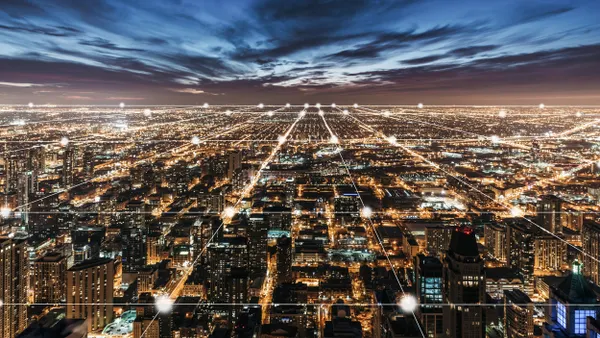Dive Brief:
- The Board of Directors for Bay Area Rapid Transit (BART), San Francisco's regional train system, voted to require BART to get board approval and give public notice before purchasing and installing surveillance technology or technology that gathers personally identifiable information.
- Under the ordinance, BART must release public reports explaining proposed surveillance technology, associated costs, what information would be collected and alternative methods. Each year, BART must present a public report detailing its activities for each surveillance technology.
- Existing technology within the BART system will be grandfathered in and is not subject to the conditions of the ordinance.
Dive Insight:
Although several Northern California cities have similar surveillance policies in place, BART is one of the first, if not the very first, transit agency in the nation to implement such a policy requiring public notice and board approval.
Civil liberties groups have fought for this measure and applauded its passage. They had said that installing surveillance systems without a policy to ensure citizens' privacy and prevent BART from sharing gathered information with the federal government is dangerous, especially to immigrant populations.
BART found itself in the midst of a controversy when media outlets reported that the agency's police department had been using license plates readers at a parking garage despite a board vote not to use the readers until a governance policy had been devised.
It turns out the data collected by the readers was accidentally sent to a database that federal agencies — including U.S. Immigration and Customs Enforcement — can access. More than 57,000 license plate photos ended up in the database. As of January, California is a sanctuary state so local police cannot enforce federal immigration laws or assist with deportations unless the person in question is convicted of a crime.
Immigration isn't the only concern with BART's technology. The new policy also creates a public process for any type of technology that gathers personal information, such as the transit system's mobile ticketing apps.
BART had a contentious public meeting last month to introduce $28 million in new security technologies including surveillance cameras, emergency call boxes and video analytics systems, reports State Scoop. The surveillance technology has been proposed following an increase in violence that has led to some high-profile situations in trains and at stations, including some that turned fatal.










